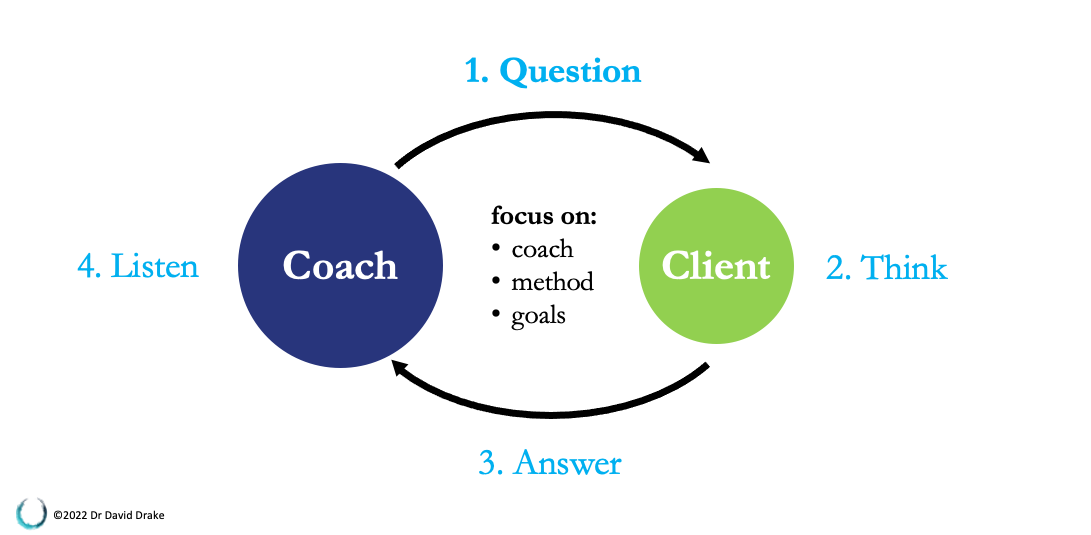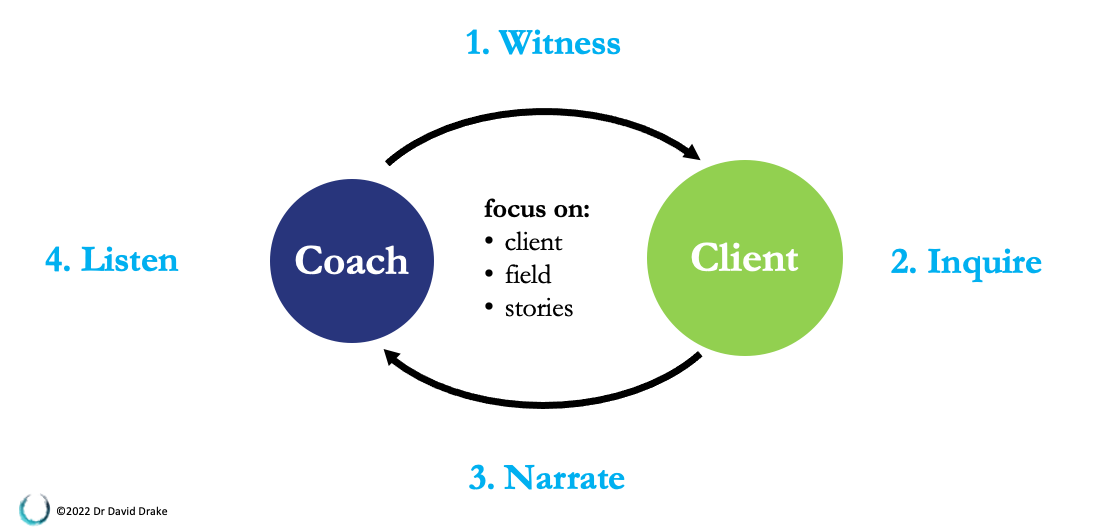
What Is Your Role as a Coach?
Friends,
If you were to answer the above question, what would you say?
You may believe it involves doing lots of preparation. Or setting the right agenda. Or having an extensive list of powerful questions. Or helping clients identify their goals.
But here at The Moment Institute, we see your role as a coach differently.
We don’t observe that coaching conversations end up where they begin, so we start with presence, not agendas. We don’t believe that clients need goals in order to achieve what is important to them as often as we imagine. We don’t believe that growth happens in a straight line as if we can know it in advance. We don’t think that our questions should drive the conversation.
Because of this different outlook, our coaching process looks and feels different than what you might be used to. But this process is what allows coaches to work with their clients with greater ease, relevance, and impact.
In this post we’ll cover:
- Your role according to traditional coaching methods
- Why those methods leave you exhausted at the end of the day
- How The Narrative Coach Program is different
- And what this perspective shift can do for your results
Let's start by hearing from Dr. David Drake:
What our graduates say they appreciate most about our Narrative Coach Program is who they become in the process. They drop most of the ‘shoulds’ many of them were taught about coaching so they can play a more authentic and powerful role with their clients. I believe this work is more important now than it has ever been in helping coaches adapt to these challenging times.
Three of the critical shifts we are helping our students and graduates make in their role as a coach:
-
To deepen their capacity to serve as a resilient witness as their clients seek to address their core human needs and existential questions.
-
To deepen their capacity to serve as a resourceful guide as their clients venture into unknown and uncharted territories in their lives and work.
-
To deepen their capacity to serve as a narrative advocate as their clients make new choices about how to make a difference in this world.
Traditional Coaching Methods
Coaching sessions are often crafted around this cycle:

The cycle starts with you, the coach, posing a question. Your client thinks and answers your question while you form the next question — often before they have finished answering the previous one.
The problem with this approach is that it relies too heavily on your questions to keep the conversation moving forward. You end up thinking one step ahead so that you’re ready with the follow-up question. However, this means that sometimes you stop listening to what the client is actually saying and what actually is calling for your attention.
Our solution is to get out of the driver’s seat and let your client decide where to go.
How Narrative Coaching Is Different
Narrative Coaches flip the paradigm:

The big shift here is from questioning to witnessing. The inquiry is less about gathering information and more about creating experiences. For example, what is present for the client right now? What are they noticing about the story they are telling in this moment? What is the story drawing to their attention?
Narrative Coaching believes that everything you need is right in front of you in the stories that the client tells you. The stories offer insights into how the clients see themselves and their world now as well as clues to what they might want to change.
This means that rather than starting with a question to take the client somewhere, you can start by witnessing how and where the client is now. Then, as the stories unfold, your job is to track the content of the story and observe the way the story is told. For example, consider their body language, the tone and pitch of their voice, and the words and gestures they use.
Your Role as a Coach
Your role as a coach is less about finding the perfect powerful question to ask and more about being present to what is emerging. It is less about setting perfect goals with your client for later and more about exploring and experimenting with what is in the ‘field’ between you now.
Your role is to be a witness — to the client, their story, and their process with you. Or, as David likes to say, to hold up a loving mirror so they can see themselves with compassionate candor in service of what they are trying to bring to life.
This is important because your coaching matters most if it helps your client grow beyond your sessions. Your job is not only to respond to your client's needs but to help them change the conditions that created the need in the first place.
In order to do that, you can:
- Help your client’s system recalibrate itself
- Support your client as they activate their inner healer
- Offer your client the scaffolding they need
- Remember that everything you need is right in front of you
When You Change Your Role, You Change Their Outcomes
A full day of coaching using traditional methods often leaves coaches feeling depleted and exhausted. And it’s no wonder if you start from a mindset that your client’s success relies on you and your ability to think of the right questions, follow the right steps, and drive to the right outcomes.
Instead, with Narrative Coaching, you will likely find (as others have) that you feel more energized and fulfilled at the end of the day.
That’s because the outcomes from Narrative Coaching are:
- More achievable - When you’re fully present with your client, you’re better able to identify where they are *right now* and what steps they can take to grow
- More meaningful - The outcomes of your sessions will be far more personalized and connected to what your client needs right now
- More sustainable - The progress your client makes in the session is more likely to stick because you’ve supported their journey not taken them on yours.
- More scalable - When you focus on the crux of your client’s issues you can help them address the narrative patterns underneath them which they can use in other areas of their life.
Where could you go with your practice if you could work this way?
Become a Narrative Coach
Enrollment for The Narrative Coach Program opens once a year. Sign up for our waitlist so you will be the first to know when doors open again.

